Jenkins MAC Hosts Third Annual Lifelong Learning Summit
The event showcased presentations from Poole College faculty and industry experts on emerging topics in accounting and finance.
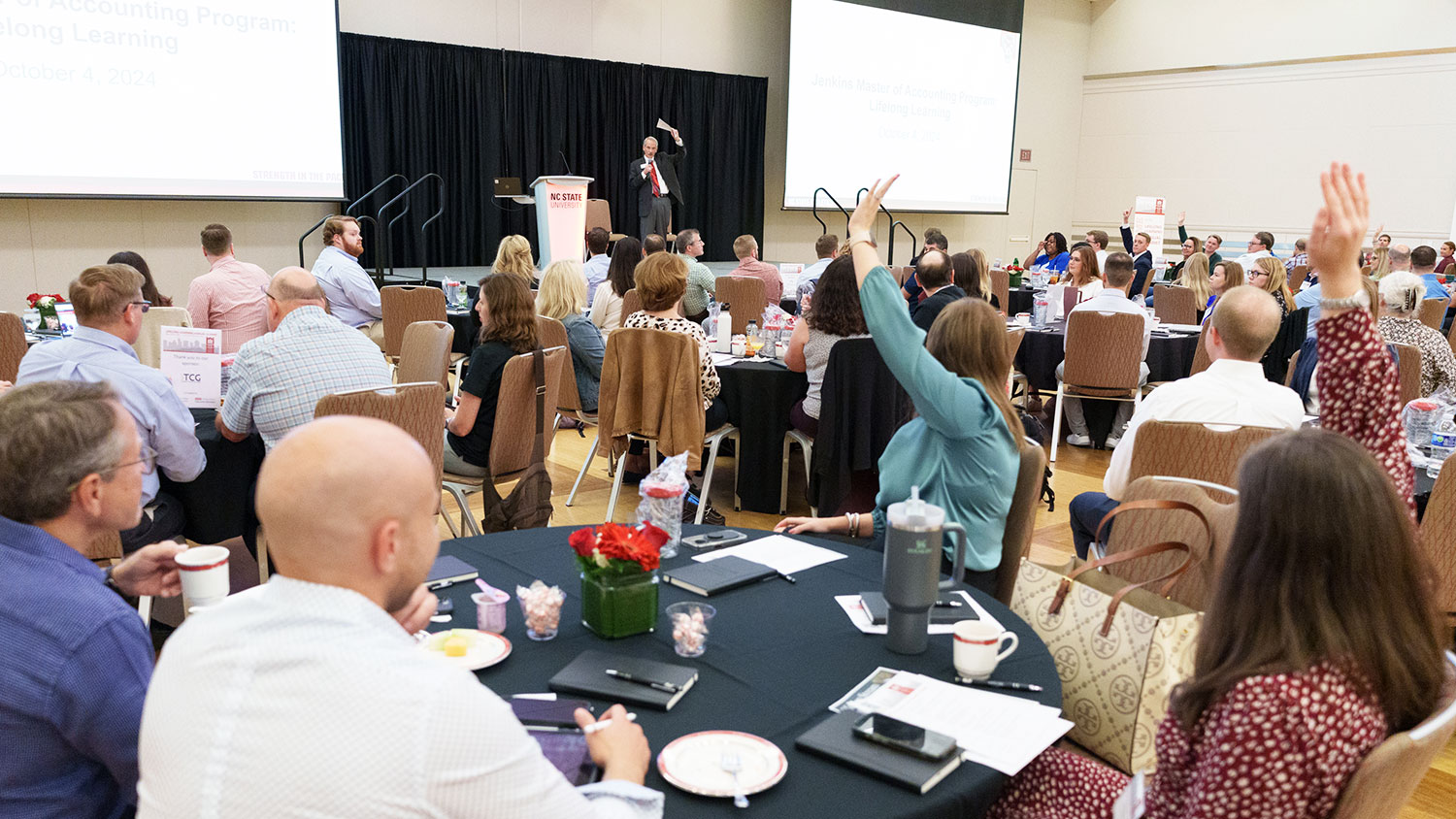
On Friday, Oct. 4, approximately 125 accounting professionals gathered at Talley Student Union for Poole College of Management’s third annual Jenkins Master of Accounting (MAC) Lifelong Learning Annual Summit. Hosted in partnership with NC State Executive Education, the event provided accountants with the opportunity to earn continuing professional education (CPE) credits while learning from and networking with other accounting professionals from across the region.
The summit was attended by Jenkins MAC alumni from 28 different graduating classes and featured presentations by industry experts on a variety of topics related to finance and accounting.
“While this program does provide you with continuing education credits, we are intentional about choosing topics we don’t think you’d hear about otherwise – like college athletics,” said Scott Showalter, Jenkins MAC director, in his opening welcome to attendees. “However, the other key piece of this event is fellowship. We hear every year that our alumni love coming back to this event to connect with their old classmates.”
The Changing Financial Landscape of College Athletics
The event kicked off with a keynote presentation from Boo Corrigan, NC State’s athletic director, who discussed how universities are navigating the changing landscape of college athletics. He talked through the revenue breakdown of the university’s athletic budget – and the challenges facing the program in the current complex and ambiguous environment.
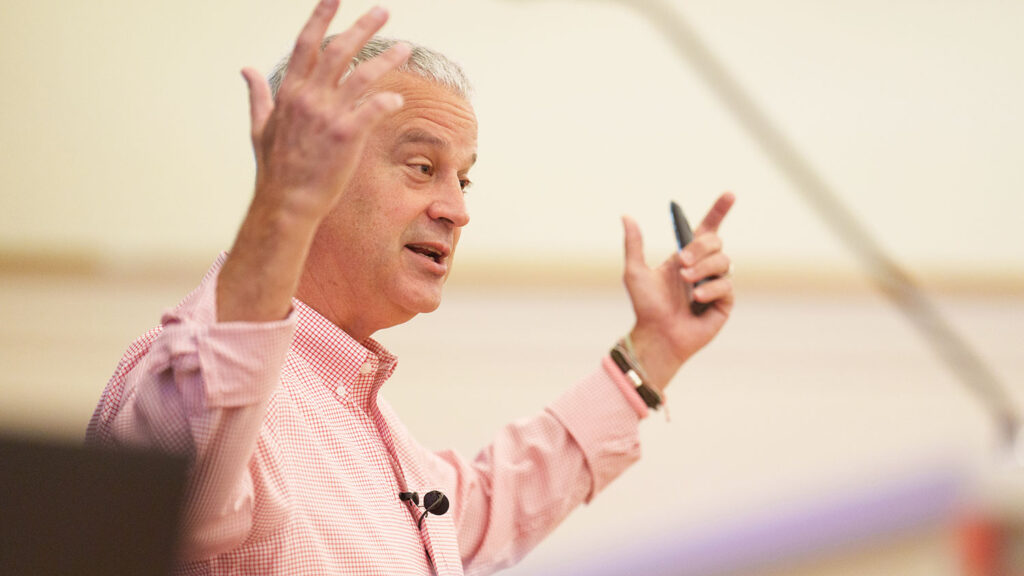
“We’re at an inflection point – with conference realignment, labor disputes, TV rights, transfer portal and NIL,” Coorigan says. “But I still think there’s never been a better time to be a student-athlete than right now.”
For attendees like Michael Zimmerman, Jr. ‘14, who himself was a student-athlete, Coorigan’s discussion of how participating in athletics translates well into professional settings was particularly interesting.
“I played collegiate soccer so when Boo discussed the challenges we face when our athletic careers end, I could relate to that,” says Zimmerman, senior manager in assurance services and business development leader at EY. “But I’ve found my sports background lends itself well to the field of public accounting because there is so much teamwork involved.”
Automation, Mental Health … and Ice Cream
In the next session, Frekia Burrell, intelligence automation manager at KPMG US, spoke with attendees about how robotic process automation (RPA) helps businesses innovate.
“When it comes to intelligent automation, RPA is very rules-based in that it will do what you tell it to do – so that differs from self-learning automation like natural language processing or machine learning,” Burrell says. “RPA helps mimic what you, yourself, would do, which reduces the need for manual decisions and allows for greater cost efficiency.”
She shared characteristics of good RPA use cases, such as tasks that are highly repetitive, rules-based and have stable systems that won’t change often. There also needs to be a clear scope to the task, so the bot will know when to start and end, she explains. At the end of her session, tables discussed what tasks they believed would benefit from automation and how they are currently using it within their own offices.
Transitioning into a discussion on burnout and mental health, Tanya St. Julien Denson, a licensed mental health professional with Hidden Stream Counseling, helped attendees learn about the origins of burnout and how it presents itself differently within different demographics and cultures. She also shared techniques to proactively reduce or prevent burnout.
“The world we live in has very high demands to perform and produce – and constant output has turned into an expectation, not a goal,” Denson says. “A 2024 study from the National Alliance on Mental Illness shows that 52% of employees feel burnout because of their job. It’s important to check in with yourself and others.”
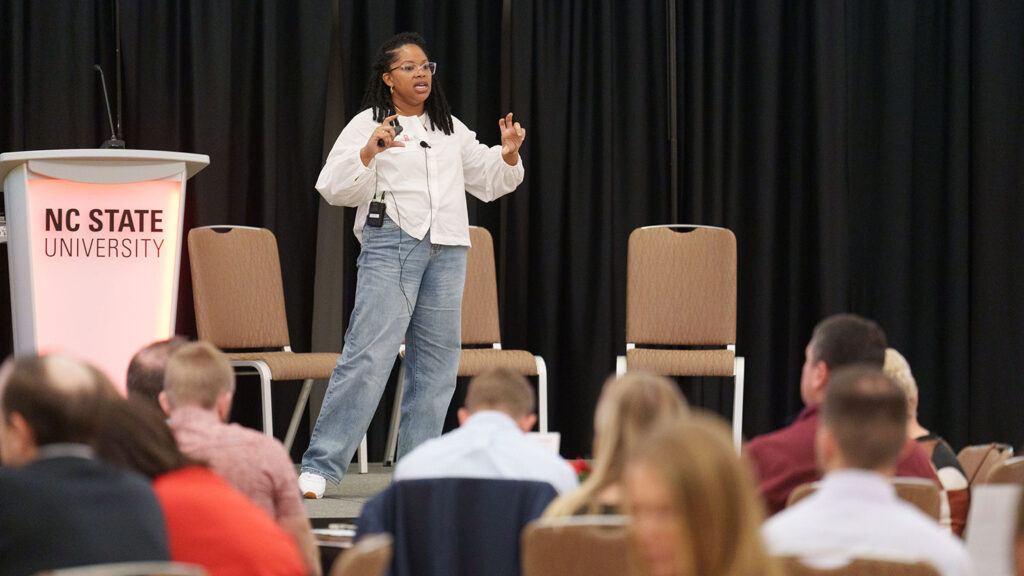
As you can only do with an audience of accountants, Denson encouraged attendees to start doing “audits” of their lives, identify their “liabilities” and “assets,” and document which “expenses” are needed to operate, and which ones need to be eliminated.
During lunch, attendees listened to a discussion between Showalter and MAC alumnus Jared Plummer ‘07, owner of Two Roosters, about his unlikely path from accounting to ice cream.
“I started at NC State studying engineering and quickly learned that it wasn’t for me. I moved into accounting, worked at EY, then worked in the MAC Program and started Two Roosters on the side as a food truck,” Plummer says. “I did everything – I made the ice cream, drove the truck, did the social media and kept the books. Now I have 78 employees on the payroll.”
As for how accounting helped prepare him to move into the world of ice cream, he quickly responded, “Risk aversion,” with a laugh. “And working long hours.”
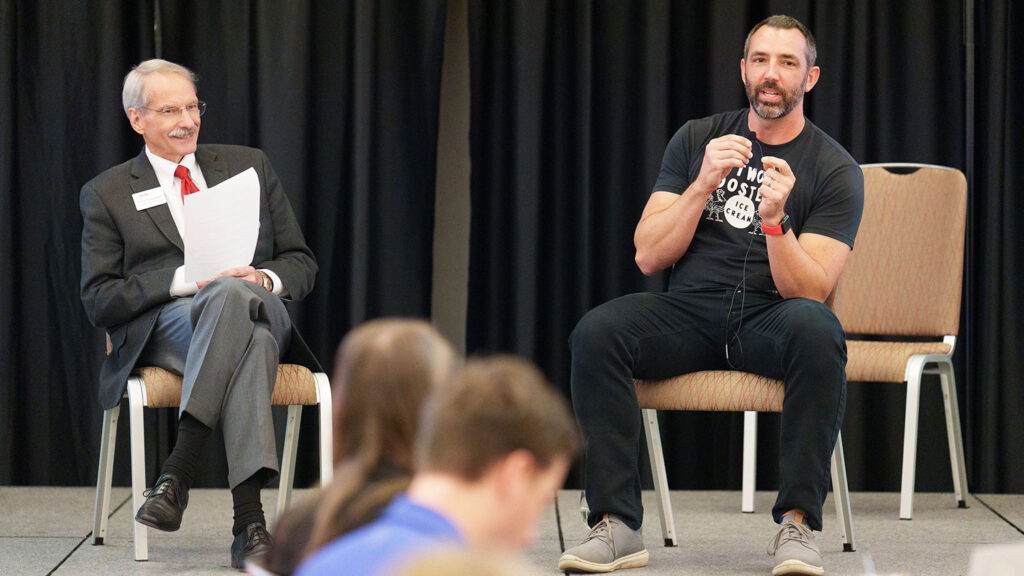
From NIL to Ethics
Continuing with the athletic theme of the day, Chris Vurnakes, general manager of the One Pack NIL Collective, spoke about how student-athletes are leveraging their name, image and likeness (NIL) into lucrative deals and how universities are navigating this new wave of college athletics.
“In 2022, we had a group of well-intentioned donors start Pack of Wolves to try to give some structure to NIL funding, without much oversight from the university or the NCAA,” Vurnakes says. “With my sports and business management experience, I was then approached to take it over and run what is now the One Pack NIL Collective for NC State.”
When student-athletes drive revenue, they should be able to receive a piece of that pie, Vurnakes says. “As an example, at this year’s Meet the Pack day, NC State receiver KC Conception spent three hours signing autographs for fans. He deserves to be compensated for that. We’re not saying, KC, you had a great game – here’s $10,000. We’re asking him to sign autographs for fans for three hours and let him know exactly how much he’ll make to do that. That’s the business of NIL at NC State.”
Today, One Pack includes 1,256 members who have distributed 1,049 payments to 189 student-athletes – and counting.
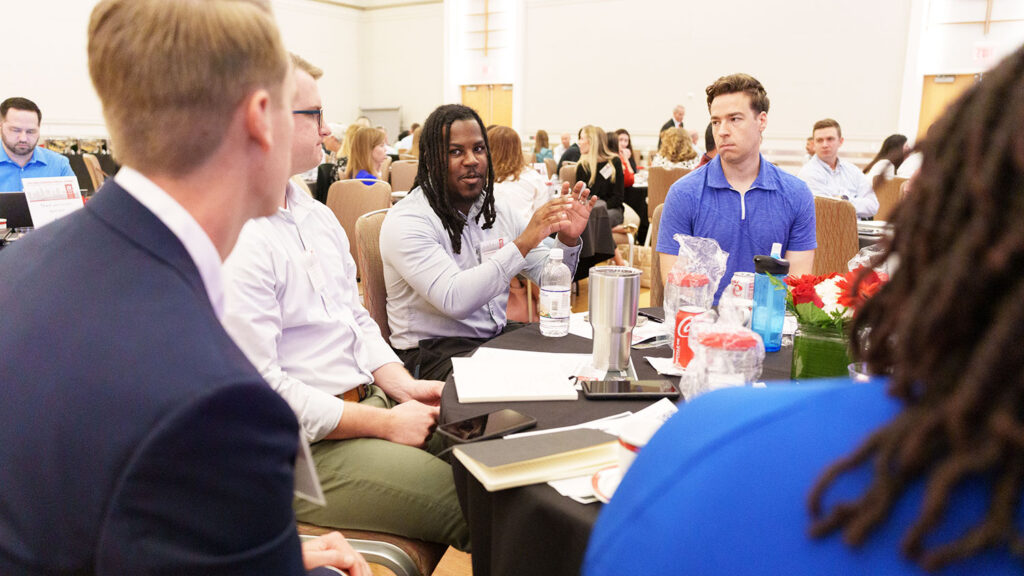
Rounding out the day, speakers addressed other pressing issues facing the accounting industry in the areas of finance, politics and ethics.
Tom Hood, executive vice president of AICPA, discussed trends and issues facing corporate finance. “We are in the fifth generation of the industrial revolution with AI, generative AI, ChatGPT, copilot and quantum computing,” Hood says. “Automation continues to propel us as an industry.”
To conclude the day’s event, Robert Broome, the North Carolina Association of CPAs (NCACPA) director of advocacy, gave a political update on pressing issues facing the industry and NCACPA’s Hunter Cook led attendees through an ethics presentation, helping to fulfill their annual ethics CPE credit.
“We are so encouraged to see how this event has grown. Our first year, we had 25 attendees, and last year, we had 60. So to have more than 125 attendees this year is an amazing accomplishment,” says Jessica Moran ‘03, associate director of academic programs for the Jenkins MAC Program. “Also, as we celebrate our 30th anniversary as a program, it was wonderful to see that all but two of our graduating classes are represented at this year’s summit. I think that shows the strong threads of the MAC family ties.”
- Categories:


